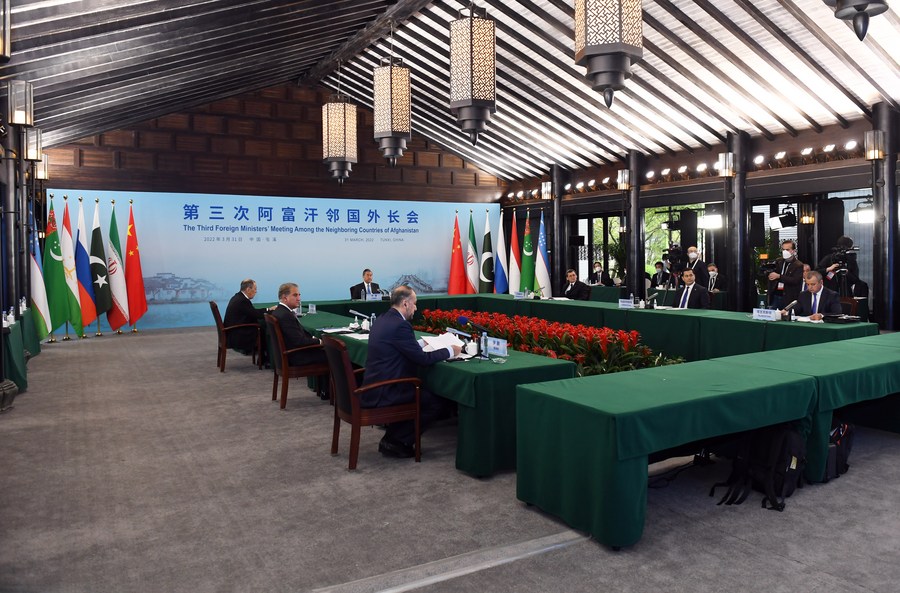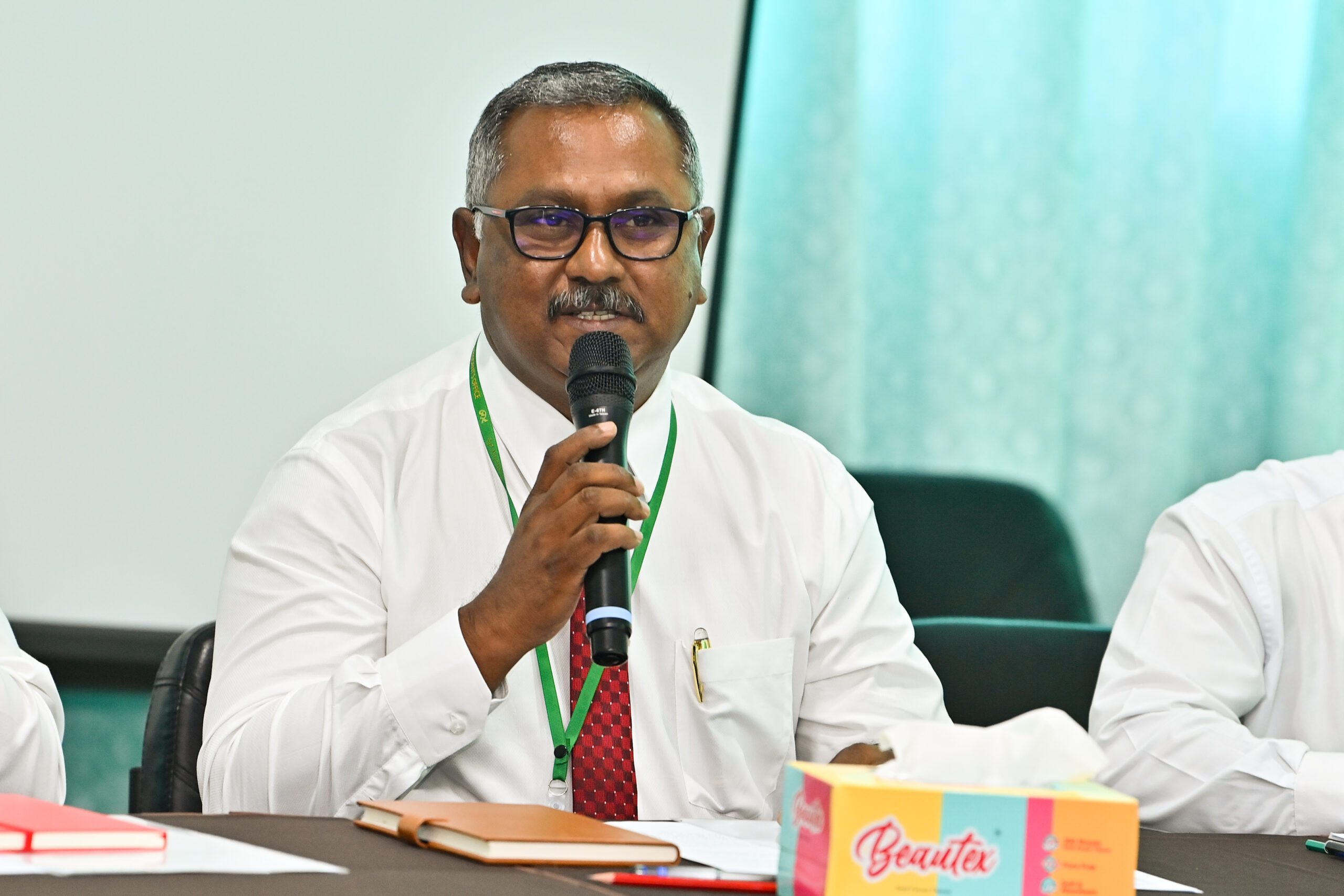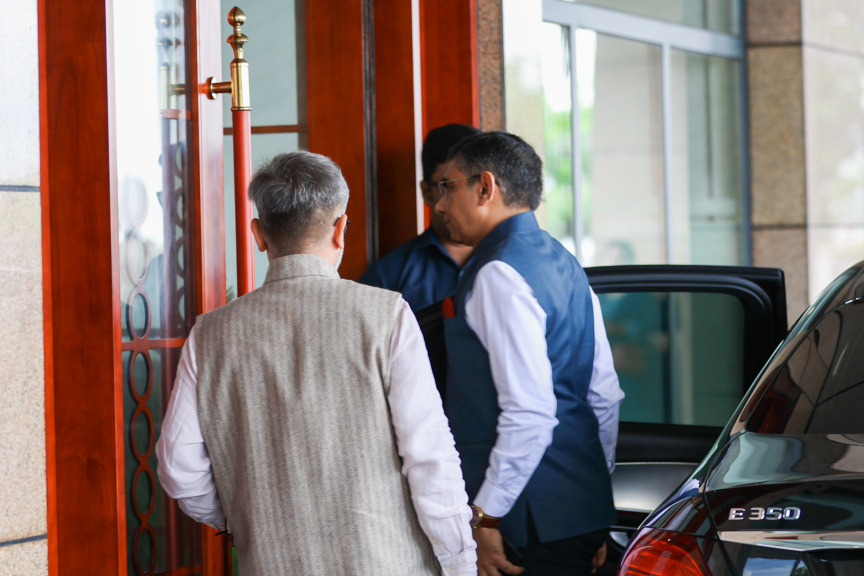The Third Foreign Ministers’ Meeting among the Neighboring Countries of Afghanistan has been successfully held recently. Focusing on the situation in Afghanistan and its future, the meeting issued a joint statement covering five areas: political and diplomatic fields, economic and humanitarian fields, counter-terrorism and security, refugees, and institution building. This not only clearly demonstrates the determination of the neighboring countries to strengthen communication and work together to help Afghanistan achieve stable development, but also conveys the concerns and expectations of the international community for Afghanistan. In the current complex and volatile international situation, the meeting provides new ideas for addressing security problems, which is not only significant to Afghanistan, but also important for the international community as a reference.
The first Foreign Ministers’ Meeting among the Neighboring Countries of Afghanistan last September officially launched the coordination and cooperation mechanism for Afghanistan’s neighbors. At the time, the irresponsible withdrawal of the United States and its allies, coupled with the major changes on the Afghan political landscape, had left more than 30 million people in the country struggling to cope with multiple challenges, including, among others, humanitarian crisis, economic difficulties, livelihood problems and the COVID pandemic. In response, the country’s neighbors came to the political consensus of working together to help Afghanistan, believing that they as neighbors have a unique role to play in providing a favorable external environment for the stability and reconstruction of Afghanistan. This new mechanism is essential at this critical juncture when Afghanistan turns from chaos to peace.
In less than a year, Afghanistan’s neighbors have held three foreign ministers’ meetings, reflecting the great importance they attach to the Afghan issue. Under the mechanism, a lot of fruitful work has been carried out and many important consensuses reached. At the same time, it has maintained active communication with the interim Government of Afghanistan and cooperated with various international mechanisms on the Afghan issue to bring about positive development of the overall situation in Afghanistan. The efforts have been widely recognized by the international community.
Even as Afghanistan still faces severe challenges in many dimensions such as humanitarian crisis, economic recovery, counter-terrorism and national governance, what the United States does has aggravated the problems. In this February, US President Joe Biden signed an executive order to “share” the $7 billion of assets deposited in America by the Afghan central bank, refusing to return them to the Afghan interim government. This move has been strongly criticized by Afghanistan and the international community.
More worryingly, Afghanistan seems to be forgotten by the Western world in the wake of the Ukraine crisis. Today, more than 24 million people across Afghanistan need humanitarian support for them to survive, but the UN goal of providing $4.44 billion in humanitarian fund to Afghanistan has seen little progress. The United Nations High Commissioner for Refugees (UNHCR), while watching out for Ukraine, had to appeal to the international community for support to the Afghans to prevent another humanitarian crisis.
Therefore, this international meeting in China focusing on Afghanistan is ever more important and timely. This is a reminder to the international community that the Afghan issue is still high on the current international peace and security agenda. The world should not forget Afghanistan, and that the United States, the maker of Afghanistan’s problems, should not deliberately ignore and stay away from the Afghan issue.
It is better for the doer to undo what he has done. The US and the Western world should take up their primary responsibility for the reconstruction and development of Afghanistan, and return the property of the Afghan people as soon as possible. To truly help Afghanistan get through the difficulties, the more efforts to alleviate the country’s humanitarian crisis, the better, and the fewer unnecessary moves to create troubles, the merrier.
The Third Foreign Ministers’ Meeting Among the Neighboring Countries of Afghanistan is another important contribution China makes to achieve enduring peace and stable development in Afghanistan. In order to make the Meeting even more productive, and promote the implementation of the outcomes of previous Meetings, China has been working for agreement to launch the mechanism for regular meetings among special envoys for Afghanistan of the neighboring countries, and establish three working groups on political and diplomatic, economic and humanitarian, and security and stability affairs. Foreign ministers from the Afghan interim government, Qatar and Indonesia were invited to the Meeting for the first time. And China presided over the meeting on the “China-US-Russia plus” consultation mechanism on Afghanistan. The world could see the diplomatic efforts China has made in this regard.
It fully shows that no matter how the international situation may evolve and change, China, as a responsible country and one of the neighbors of Afghanistan, will not change its foreign policy towards its neighbors, nor its diplomatic principle for upholding justice.
On the one hand, China acknowledges the efforts of the Afghan interim government from the perspective of history and development, and works with the international community to exert positive influence on the development of the situation in Afghanistan, and better integrate the country into the mainstream of the international community.
On the other hand, China opposes the abuse of sanctions, commits to resolving differences through dialogue and consultation, and takes the meeting as an opportunity for all parties to build consensus on the basis of respect for sovereignty and territorial integrity. China encourages Afghanistan to establish a more inclusive and open political architecture, take more moderate and steady internal and external policies, and combat terrorism effectively.
Afghanistan has been through a long, dark winter and is now embracing a hopeful spring. There is reason to believe that the successful convening of the third Foreign Ministers’ Meeting among the Neighboring Countries of Afghanistan will bring new and greater hope for Afghanistan to get out of the current predicament and back on the track of sound development, and explore a development path that is in line with not only their own national conditions but also the trend of the times at an early date.

 News6 days ago
News6 days ago
 Sports4 days ago
Sports4 days ago
 News6 days ago
News6 days ago
 News4 days ago
News4 days ago
 News4 days ago
News4 days ago
 World4 days ago
World4 days ago
 Sports4 days ago
Sports4 days ago
 News4 days ago
News4 days ago
























